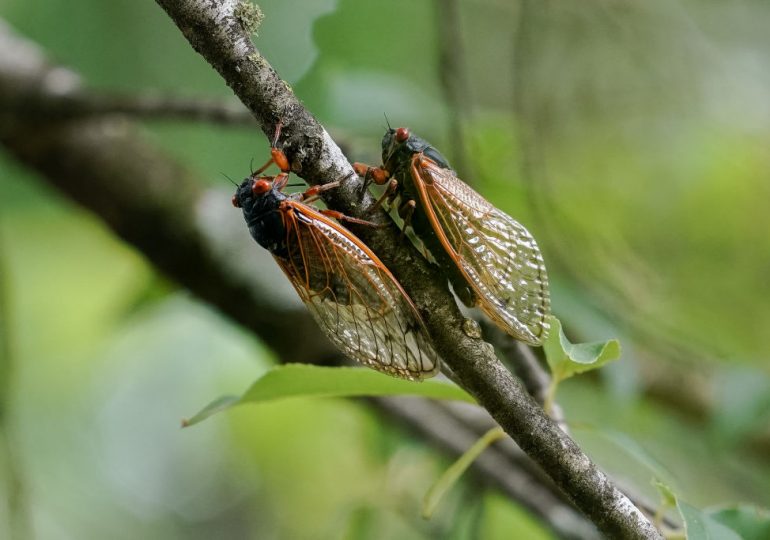As more than a trillion cicadas emerge from underground this month, experts warn that people on the autism spectrum or who are sensitive to sound may find the insects’ noise overwhelming.
The large co-emergence of cicadas from both a 13-year and 17-year brood this spring is the first of its kind in more than 200 years. The emergence has already begun in some regions, and the cicadas will be visible in several states, including Illinois, Iowa, Georgia, and Tennessee. The emergence is expected to last until June.
[time-brightcove not-tgx=”true”]
Read More: An Animated Guide to the Rare 2024 Cicada Co-Emergence
Once they emerge, male cicadas sing a mating call to attract female cicadas. Because of the insects’ large presence, the continuous and high-pitched buzzing sound can be loud; the Centers for Disease Control and Prevention (CDC) said that there were reports of noise levels reaching as high as 90 to 100 decibels in 2021. In April, the cicadas were so loud in a South Carolina county that residents called the sheriff’s office to ask why they were hearing sirens or a loud roar, Associated Press reported.
The cicada noise does not cause hearing loss, according to the CDC. But researchers warn that the sound may be overwhelming for the nearly 5.5 million people in the U.S. who have autism spectrum disorder and are sensitive to sound.
“Some children on the spectrum can struggle with loud or unexpected noises, such as toilets that automatically flush, fireworks around the Fourth of July or the emergence of a large number of cicadas,” Dr. Rachel Follmer, an assistant professor of developmental behavioral pediatrics at Northwestern University Feinberg School of Medicine, said in a press release. “Sometimes, when they’re prepared that something will be loud, they may be better able to tolerate the sound. It’s not just that the sound is loud but that it happens unexpectedly.”
Follmer, who is also a physician at Ann & Robert H. Lurie Children’s Hospital of Chicago, offered several steps that parents can take to prepare their children, who may be more sensitive to the cicada noise. Those steps could include watching YouTube videos or listening to audio clips with children to familiarize them with the sounds and developing a plan of what to do if the sound is overwhelming, such as having headphones or earplugs readily available. Parents could also show their children photos of cicadas to explain what they are and why they’re emerging.
Follmer suggested using social stories—which are narratives that walk children through a situation—to help children prepare.
“Because some children on the spectrum have communication difficulties, they might not be able to explain how they’re feeling, so it’s helpful to give them tools in advance that may help them to communicate,” Follmer said in the press release.
Follmer added that in general, children, whether or not they are on the spectrum, may be sensitive to sound, and so encouraged all parents to prepare their children for the noise associated with the cicada emergence.
Leave a comment





